Looking for Hungary's Vanished Rural Jews
This article is published in Historia Magazine.
https://www.historiamag.com/hungarys-vanished-village-jews/
In Hungary, I began searching for the vanished rural Jewish community. Forbidden to own land until the late 19th century, excluded from guilds, the law, the civil service, and education, local Jews had been peddlers, rag and bone men, cobblers and tailors. Others ran the nobles’ bars, mills, and lumberyards, and those more influential were negotiators for the estates’ produce. But, to my surprise, all denied that Jews had lived here.
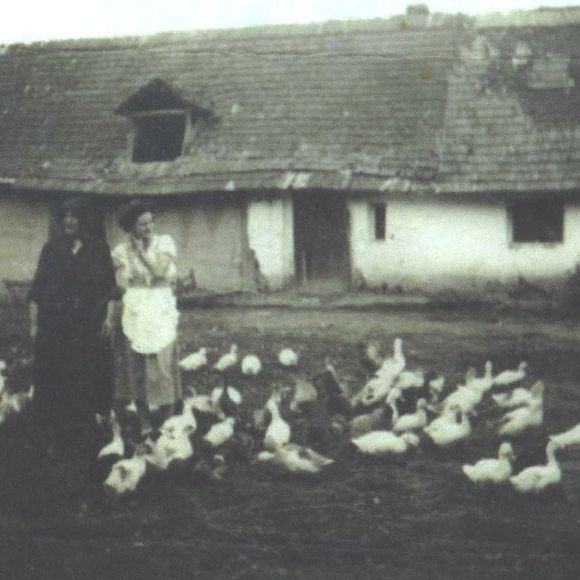
Public Speaking
Jill Culiner has talked about the Romanian Jewish Fusgeyers and the farming colonies in Western Canada at the Centre for Jewish History, New York, the Jewish Historical Society of Western Canada, the Wandering Jew Seminar in Tel Aviv, the Romanian Interest Group at Harvard University, and at Jewish Genealogical and Historical Societies in Boston, Toronto, Oregon, Montreal, Fairfield County, Berkeley, Vancouver, Philadelphia, Oklahoma, Marin County, Ottawa, Calgary, and Edmonton.
Selected lecture and presentation Topics
- Jewish village life in 19th century Eastern Europe and in France
- Jewish life in Hungary
- Jewish life in villages on the Great Hungarian Plain
- The pogroms of 1946 in Hungary and Poland
- Immigration and the Jewish agricultural communities in Canada
- The internment camps in France during WWII
- The Haskalah in Eastern Europe
- Velvel Zbarzher, bard
All subjects can be tailored to suit the audience and the venue.
To hear her storytelling podcast, go to:
https://soundcloud.com/j-arlene-culiner
Please contact Jill at jill (at) jillculiner-writer (dot) com if you are interested in having talk to your group.
Artist Web site: http://www.jill-culiner.com
Facebook: https://www.facebook.com/JewishHistories
Twitter: https://twitter.com/jillculiner
Linkedin: https://www.
Blog: https://jewish-histories.over-blog.com
Storytelling Podcast: https://soundcloud.com/j-arlene-culiner
Past Events
Zoom Conference
Toronto Workmen's Circle
Sunday, Jan 23rd, 2:00 pm (EST)
The Old Country, how did it smell? Sound? Was village life as cosy as popular myth would have us believe? Was there really a strong sense of community? Perhaps it was another place altogether.
In nineteenth-century Eastern Europe, Jewish life was ruled by Hasidic rebbes or the traditional Misnagedim, and religious law dictated every aspect of daily life. Secular books were forbidden; independent thinkers were threatened with moral rebuke, magical retribution, and expulsion. But the Maskilim, proponents of the Haskalah or Jewish Enlightenment, were determined to create a modern Jew, to found schools where children could learn science, geography, languages and history.
Velvel Zbarzher, rebel, glittering star of fusty inns, spent his life singing his Haskalah poems to loyal audiences of poor workers and craftsmen in Romania, Galicia, Vienna and Constantinople, but he was also a friend of leading intellectuals: Hebrew writer and school director Moshe Orenstein, writer and journalist, Peretz Smolenskin, Rabbi Dr Moses Fried, actor Berl Broder, and the famous father of Yiddish theatre, Avrom Goldfaden.
By the time Velvel died in Constantinople in 1883, the Haskalah was over. The modern Jew had been created, yet assimilation hadn’t brought an end to anti-Semitism, and disillusion gave birth to new movements: Zionism with its promise of a homeland free of exclusion, Socialism, Marxism, Leninism, and Bundism.
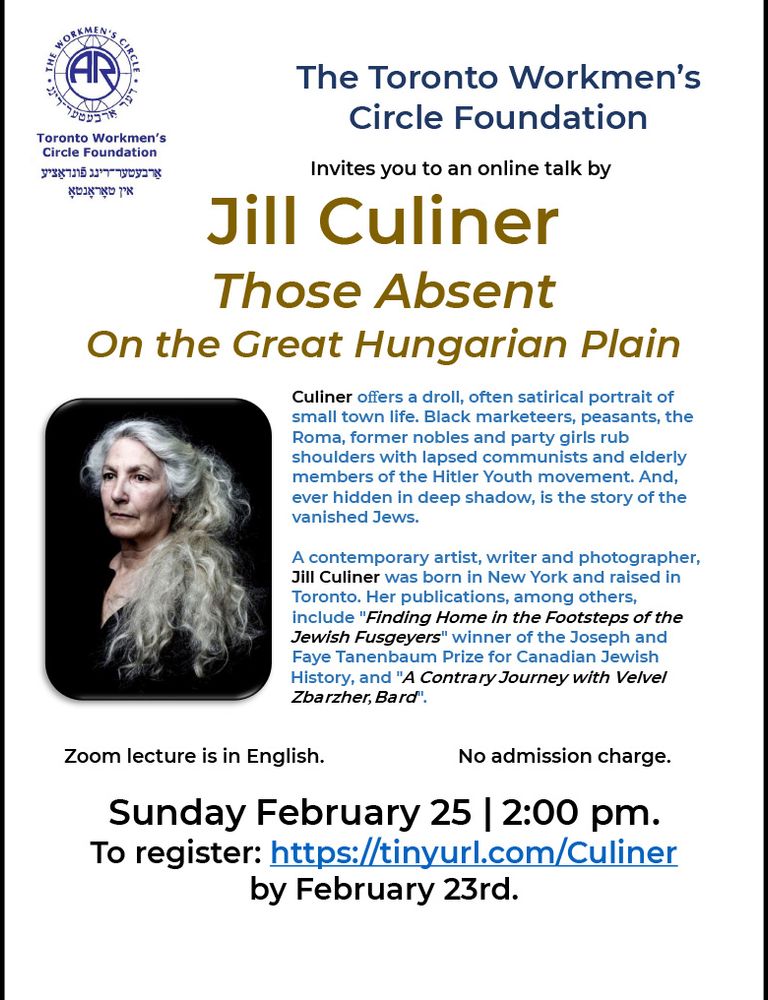
-------------------------------------------------------------------------
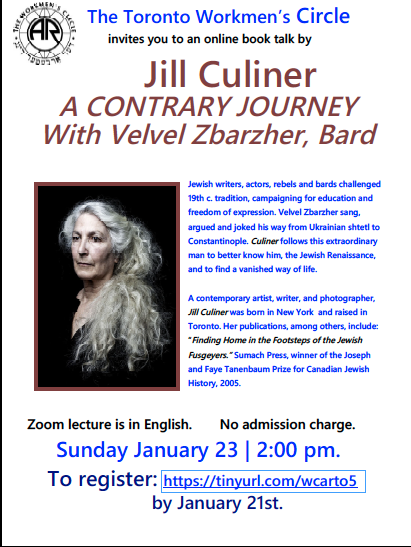
Zoom Conference
Jewish Historical Society of Fairfield County
Sunday February 22nd, 2022
11 AM EST
tel: 203-359-2196 or
info@jhsfc-ct.org
http://www.jhsfc-ct.org/
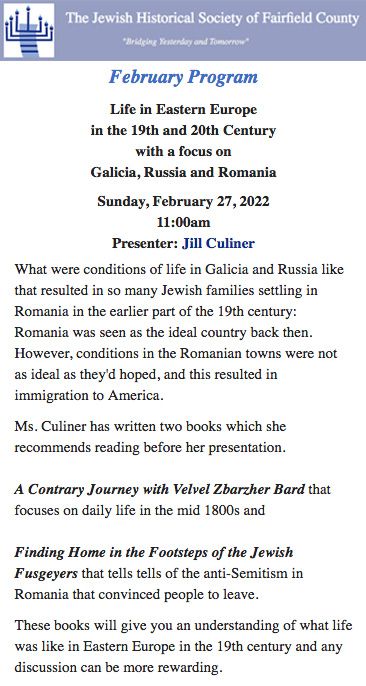
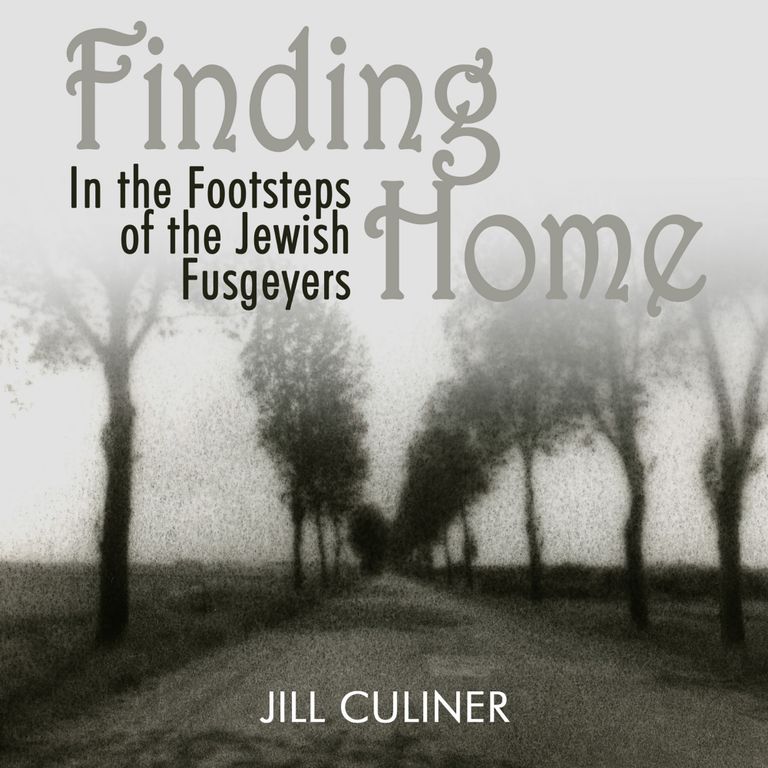
Wed, 21 Sep 2022 18:30 - 19:30 British Summer Time (UTC+1) Come along and hear this fascinating story chronicling a forgotten part of Jewish history with author Jill Culiner.
The Fusgeyers were the thousands of persecuted Romanian Jews who, between 1899 and 1907, were determined to leave their country on foot and head for North America.
Destitute but resolute, they supported themselves along the road by giving theatrical performances, or selling stories and poems.
Although the Fusgeyers planned to walk all across Europe, they were stopped at the Austro-Hungarian border, and could only continue their journey by train.
Some settled in countries along the way — Austria, Germany, and England — where they became peddlers, sweatshop workers, shopkeepers, café and restaurant owners, or actors and writers in the famous Yiddish theatre.
Those who arrived in Canada helped build the railway west, worked in the gold and silver mines, or created the first Jewish agricultural communities.
The Fusgeyer movement might have been forgotten if Jacob Finkelstein, a Fusgeyer from Barlad, hadn’t written a short memoir of the journey. Finding a copy of his story at the YIVO institute in New York, historian Jill Culiner translated it from the original Yiddish, and decided she would also walk across Romania, then continue by train along the former immigrant trail until she reached the Canadian prairie.
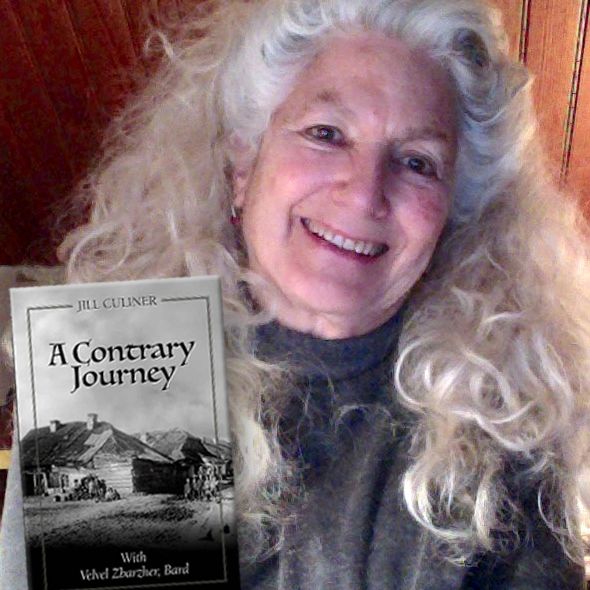
A Contrary Journey
Book Talk
Royal Borough of Kensington and Chelsea Libraries
Tue, 26 April 2022, 18:30 – 19:30 BST
About this event
Link to join Webinar: https://us06web.zoom.us/j/84326191211
In nineteenth-century Eastern Europe, Jewish life was ruled by Hasidic rebbes or the traditional Misnagedim, and religious law dictated every aspect of daily life. Secular books were forbidden; independent thinkers were threatened with moral rebuke, magical retribution and expulsion.
But the Maskilim, proponents of the Jewish Enlightenment, or the Haskalah, realised that Jews had to become fully integrated citizens of centralized European states. Superstition had to be vanquished, modern dress worn, and European languages spoken. Jewish children needed to attend progressive schools where they would learn science, geography, languages, history, mathematics, and grammar. Although Jewish moral codes were to be preserved, ancient texts required a rationalist interpretation.
Condemned as heretics, cut off by their families and estranged from their communities, these Maskilim became writers, teachers, poets, and singers, and their struggle changed Jewish society.
After 1860, Jewish intellectual life was blossoming, and Jews were working as journalists, linguists, publishers, novelists and teachers. Breaking the religious ban on public performance, singers and poets were performing in coffeehouses and creating the first Yiddish theatre.
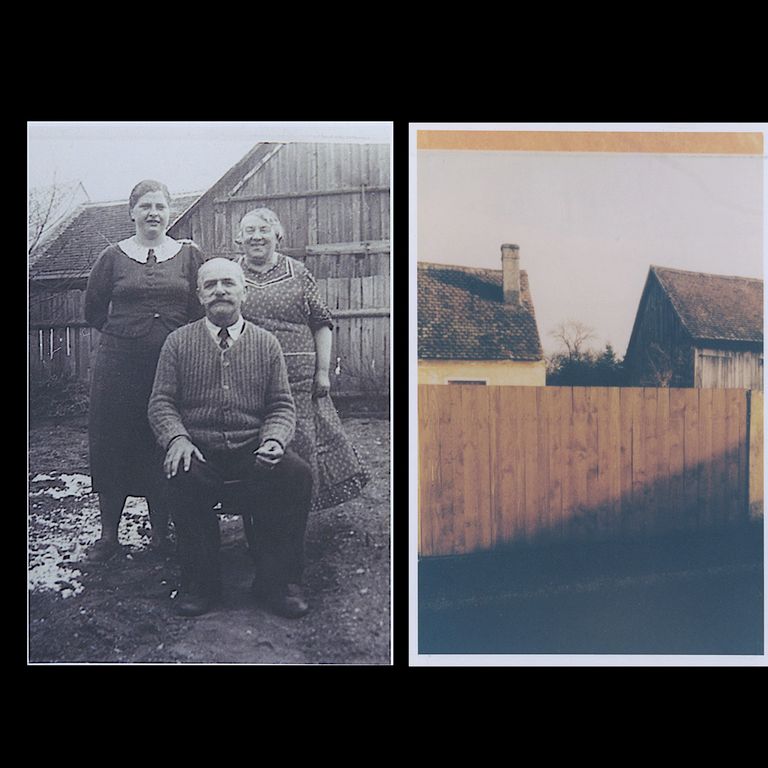
Looking for the “lost” Jewish villages that, according to my grandparents, had been wiped off the map.
The Lost Jewish Villages, Zoom Talk: November 28; 2022
The Association of Jewish Refugees
Nous avons besoin de votre consentement pour charger les traductions
Nous utilisons un service tiers pour traduire le contenu du site web qui peut collecter des données sur votre activité. Veuillez consulter les détails dans la politique de confidentialité et accepter le service pour voir les traductions.
